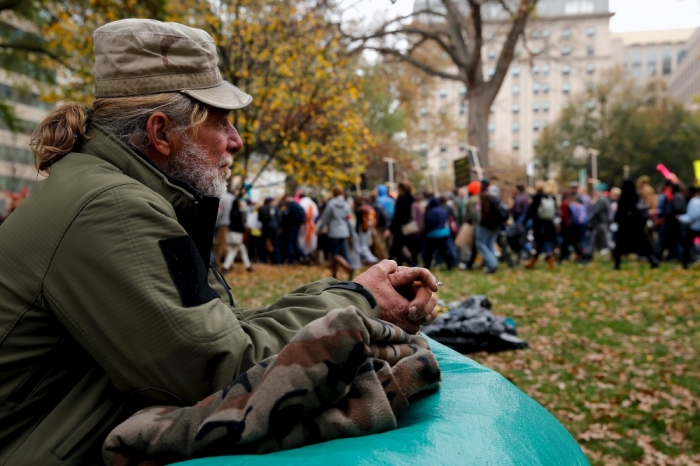Wealthy Americans Live Up to 15 Years Longer Than Poorest: Study

A new study looking at inequality in the U.S. healthcare system has concluded that wealthy Americans live up to 15 years longer on average than the poorest ones.
The study, Inequality and the health-care system in the USA, was conducted by research doctors Samuel L. Dickman of the Department of Medicine, University of California, San Francisco; professors David U Himmelstein and Steffie Woolhandler, both affiliated with the City University of New York School of Urban Public Health at Hunter College and Harvard Medical School.
The study is the latest in a series of articles published in the journal The Lancet about U.S. health and healthcare.
It highlights how widening gaps of income inequality are driving increases in health inequity. The series warns of a 21st century health-poverty trap unless new interventions are implemented.
"Widening economic inequality in the USA has been accompanied by increasing disparities in health outcomes. The life expectancy of the wealthiest Americans now exceeds that of the poorest by 10–15 years," say the researchers in a summary of their study.
"Almost every chronic condition, from stroke to heart disease and arthritis, follows a predictable pattern of rising prevalence with declining income. The life expectancy gap between rich and poor Americans has been widening since the 1970s ...," the study further explains.
The research shows how the healthcare system, which could reduce income-based disparities in health, often makes these disparities worse.
"Poor Americans have worse access to care than do wealthy Americans, partly because many remain uninsured despite coverage expansions since 2010 due to the ACA [Affordable Care Act]. For individuals with private insurance, rising premiums and cost sharing have undermined wage gains and driven many households into debt and even bankruptcy," the study says.
While all of this is happening the share of healthcare resources devoted to care of the wealthy has risen.
"Many patients cannot afford the care they need, and often forgo medical care altogether. For example, 19 percent of non-elderly adults in the USA who received prescriptions in 2014 (after full implementation of the Affordable Care Act) could not afford to fill them. Millions of middle-class families have been bankrupted by illness and medical bills. Meanwhile, very wealthy Americans are turning to so-called concierge practices that offer lengthy office visits and unfettered access to specialists," the researchers say.
"At least in some cases, when poor patients avoid care, doctors and hospitals fill the empty appointment slots and beds with patients who are less price-sensitive — an example of supply-sensitive demand. Strikingly, the USA has the world's highest healthcare expenditures despite extensive cost sharing by patients," they continue.
The researchers note that in carrying out the study, they first reviewed how social position influences Americans' access to medical services and the quality of those services.
They found that while the uninsured face the greatest barriers to care, many insured Americans are also unable to afford medical care because of cost sharing.
"Although race-based disparities in quality are well documented, the low quality scores of doctors and hospitals serving poor communities might reflect patients' deprived social circumstances rather than their providers' performance," the study says.
"Additional reforms that move forward, rather than backward, from the ACA are sorely needed to mitigate health and healthcare inequalities and reduce the financial burdens of medical care borne by non-wealthy Americans," the researchers warn.



























